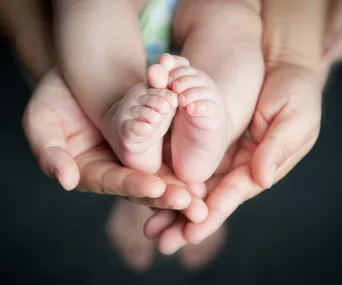New research has found an “oversupply” of educated women grappling to find an equally educated partner has led to a massive jump in the number of eggs being frozen
In Australia, a 2017 survey revealed women make up almost 58% of registered domestic undergraduate students. This gender imbalance is predicted to continue to grow, reflecting a decline of men following on with higher education.
The study reported women want equality in a relationship and are refusing to settle for second best when it comes to an equally educated partner.
It’s a finding that has women all over the world shaking their heads and proclaiming, “duh”.

The process of egg freezing made headlines earlier this year after Sofia Vergara permanently block her ex-fiancé from accessing her frozen embryos.
Yale University conducted the research and spoke to 150 women at eight different egg freezing clinics in both the US and Israel.
Almost all (90%) of the women said their motivation for freezing their eggs was due to being were single/unmarried, and 81% of the women college degree.
The author of the study, Author Prof Marcia Inhorn told the BBC yesterday that she hopes the findings will debunk the outdated notion of the selfish and barren career woman.
“Extensive media coverage suggests that educational and career ambitions are the main determinants of professional women’s fertility postponement, especially as they ‘lean in’ to their careers. Rather, they were desperately preserving their fertility beyond the natural end of their reproductive lives, because they were single without partners to marry.”
What is egg freezing?
According to IVF Australia
“Egg freezing is a method of storing a woman’s unfertilised eggs to allow her to try to conceive at a later date, when natural conception would be unlikely. It may been seen as a way of preserving the possibility of fertility for women who are not in a position to becoming pregnant straight away, or whose fertility is at risk for medical reasons such as cancer treatment.”
“Frozen eggs may be stored for many years without significant deterioration. When the woman is ready to use her eggs, they are warmed, and then fertilised with sperm. The aim is for the fertilised egg to develop into an embryo, which can then be transferred to the woman’s uterus giving a chance of pregnancy.”
How much does it cost to freeze your eggs?
Medicare is only an option if you have to freeze your eggs because of a medical conditions, explains IVF Australia.
It is not a cheap nor an easy process.
“Most women who freeze eggs are not infertile and hence do not receive a Medicare rebate. That is why we have created a special egg freezing package to make the costs clear and simple.”
Item Cost
Egg freezing cycle (up to 10 eggs retrieved) $6,885
Additional eggs retrieved (in increments of 10) Additional $300
Day surgery fee $1,045
Medications From $1500
Anaesthetist fee Approx. $500
Ongoing storage $500 per year
The egg freezing cycle costs include:
Cycle monitoring blood tests & ultrasound scans
Specialist nursing care and couselling support
Surgeon’s fees
Initial freeze and 6 months complimentary storage
For more information on the egg freezing process consult your GP, a fertility specialist or call 1800 111 483



